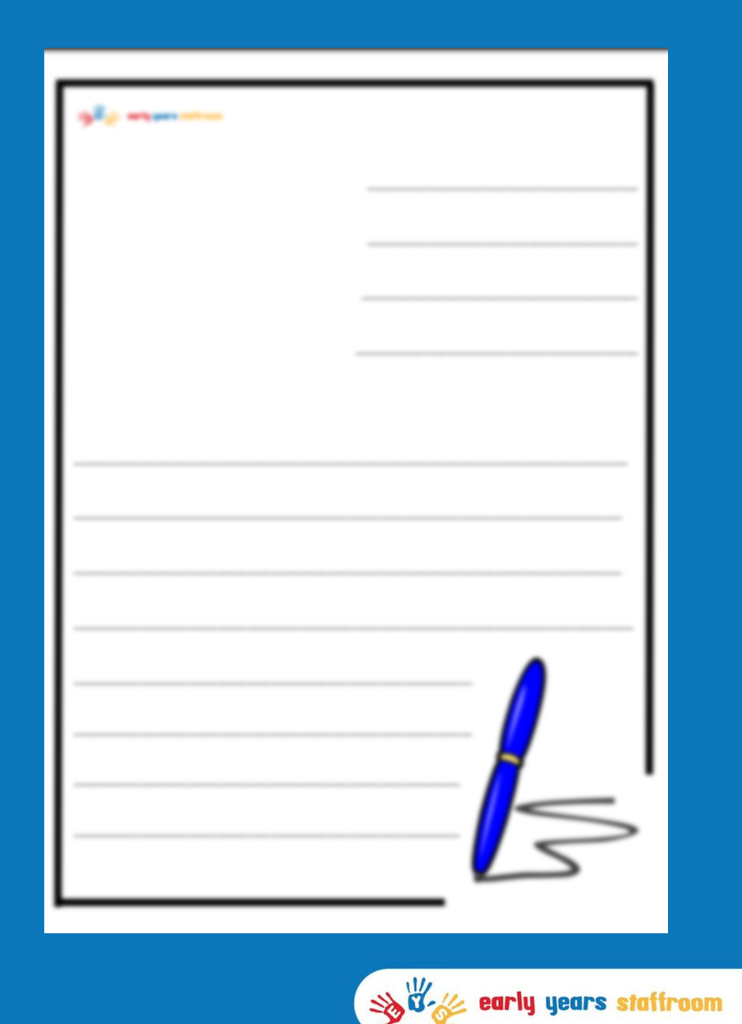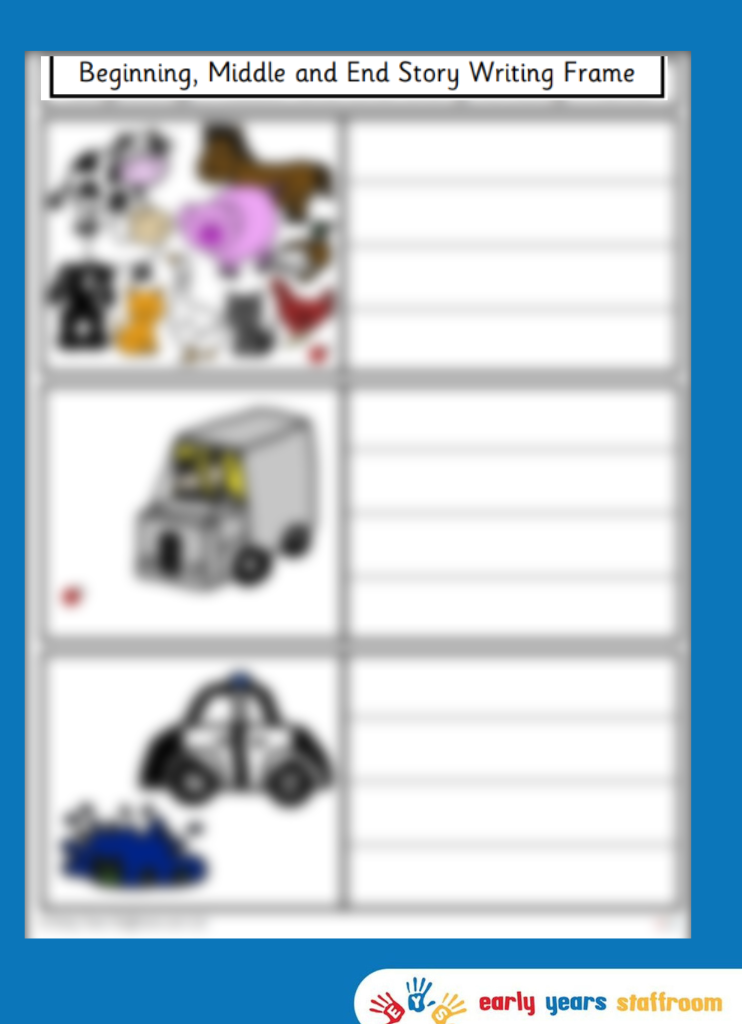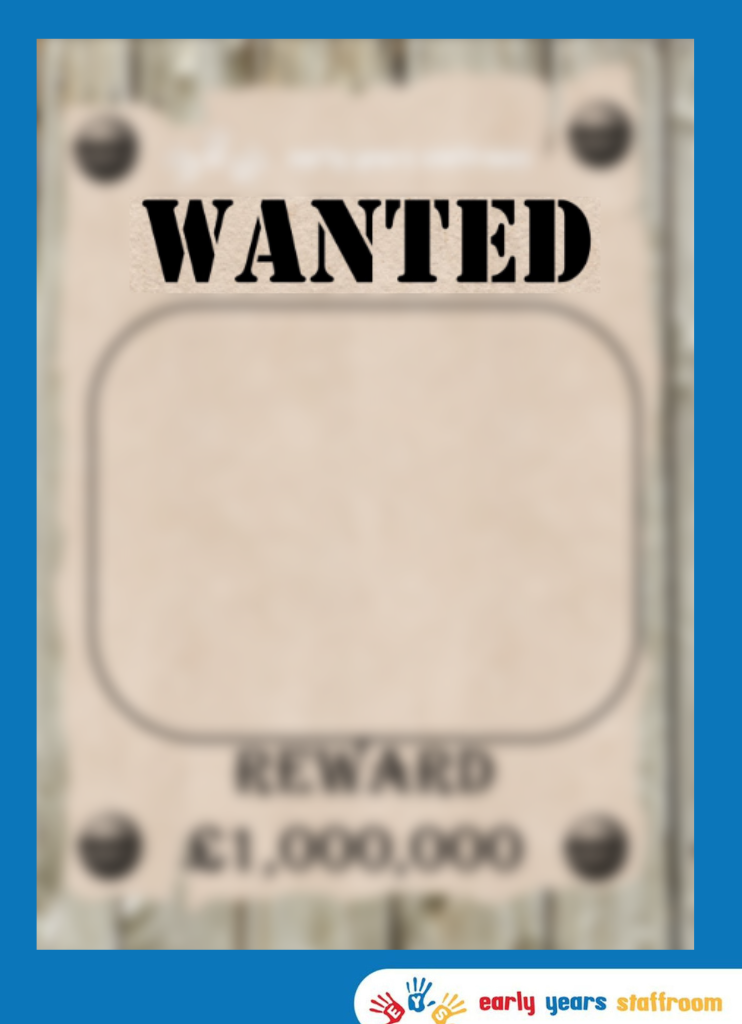Letter Template for Writing Area

This is a general letter template to use in your writing area for children to send messages or write letters.
Engaging in this type of pretend play is beneficial for a variety of reasons:
Development of Fine Motor Skills: Pretending to write involves holding and manipulating writing tools, like pencils, crayons, or markers. This helps in refining fine motor skills and hand-eye coordination, which are crucial for actual writing in the future.
Literacy Awareness: Even if children aren’t forming recognizable letters yet, the act of pretending to write introduces them to the concept of written communication and the symbolic nature of letters and words.
Imitation and Role-playing: Young children learn a lot through imitation. By copying adults or older children writing, they’re engaging in role-playing, which is a vital aspect of socio-emotional development. They might play “office,” “school,” or “post office” while writing these pretend letters.
Expressing Thoughts and Emotions: Even in their scribbles, children might be expressing certain ideas, stories, or feelings. It’s a form of early self-expression.
Introduction to Storytelling: Children often narrate what they’re “writing” about, which can be a starting point for storytelling. This nurtures creativity and cognitive development.
Boosting Self-esteem: Successfully pretending to write and produce “letters” or “notes” can give children a sense of accomplishment, bolstering their self-esteem and confidence.
Understanding Conventions: As they mimic letter-writing, children start understanding some conventions of writing, like writing from left to right (in languages that follow this pattern), or the idea of starting at the top of a page.
Social Interaction: Children often “write” letters to specific people, like parents, teachers, or friends. This can lead to social interactions, such as giving the letter to someone, leading to discussions, and reinforcing social bonds.
Encouraging Curiosity: Pretend writing can lead to questions and conversations about letters, words, and meanings, paving the way for more structured literacy instruction as they grow.
In essence, pretending to write letters in the early years goes beyond just scribbles on a paper. It’s a multifaceted activity that supports children’s physical, cognitive, socio-emotional, and linguistic development, all while being a fun and engaging form of play.
All our planning has been carefully created by experienced qualified primary school teachers with QTS therefore you can be sure that your planning will achieve your outcomes and aims.
Not quite what you were looking for? Search by keyword to find the right resource, or please email us to request a resource at admin@earlyyearsstaffroom.com.












